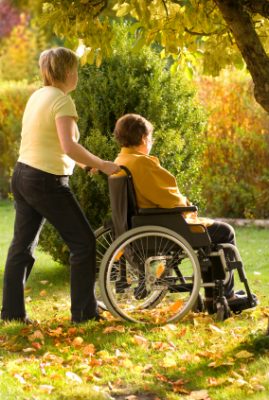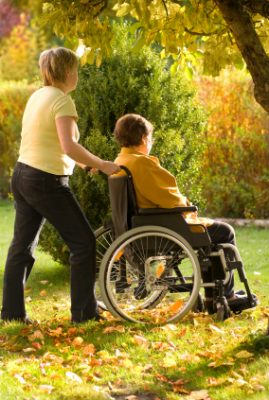Nature Deficit Disorder and Nursing Home Residents

 April 22 is Earth Day. A perfect time to reflect on how nursing home residents may suffer nature deficit disorder. Our world has become increasingly high-tech, consequently our connection to nature has diminished. I’ve often heard this associated with our kids but I see it in senior care, too.
April 22 is Earth Day. A perfect time to reflect on how nursing home residents may suffer nature deficit disorder. Our world has become increasingly high-tech, consequently our connection to nature has diminished. I’ve often heard this associated with our kids but I see it in senior care, too.
Author Richard Louv coined the term “nature deficit disorder” in his popular book, Last Child in the Woods. Children experience anxiety, depression and poor attention span when they don’t spend time outdoors.
Training senior caregivers takes me to nursing homes all around the country. It’s striking how little exposure long-stay resident have to nature. The kind that gets us dirty and we get our feet and hands in soil, water, leaves. Sounds of wild birds and wind.
Nature pre-schools create playgrounds out of logs, sand, ponds, trees, rather than playground equipment made from metal and plastic. I visited one in Michigan and it warmed my heart to see kids outdoors playing like I remember doing. Running and getting all sweaty and making mud pies! I believe we are hard-wired as humans to be connected to nature. It feeds our souls, no matter if we are 10 or 100.
In elders, nature can promote physical, mental, and social health of older adults. One study points out "that their roots, identity and good memories were closely linked to ... a life lived in nature and the outdoor environment."
Above all, anytime we have a chance to share nature with an elder, let’s do it. We'll all be better for it!
Share an experience of connecting an elder with nature.
Ann Catlin is a team member of AGE-u-cate Training Institute.


